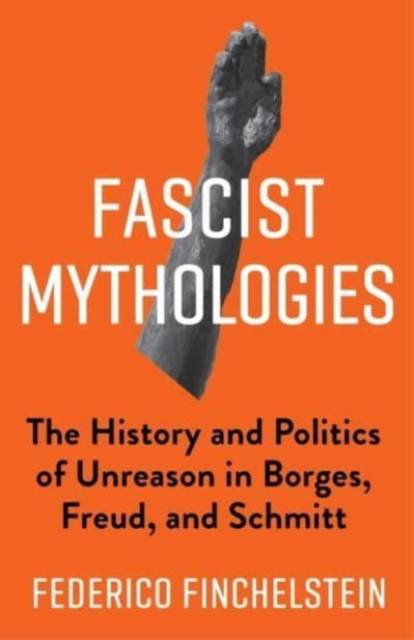
- Retrait gratuit dans votre magasin Club
- 7.000.000 titres dans notre catalogue
- Payer en toute sécurité
- Toujours un magasin près de chez vous
- Retrait gratuit dans votre magasin Club
- 7.000.0000 titres dans notre catalogue
- Payer en toute sécurité
- Toujours un magasin près de chez vous
Fascist Mythologies
The History and Politics of Unreason in Borges, Freud, and Schmitt
Federico Finchelstein
186,95 €
+ 373 points
Format
Description
For fascism, myth was reality--or was realer than the real. Fascist notions of the leader, the nation, power, and violence were steeped in mythic imagery and the fantasy of transcending history. A mythologized primordial past would inspire the heroic overthrow of a debased present to achieve a violently redeemed future. What is distinctive about fascist mythology, and how does this aspect of fascism help explain its perils in the past and present?
Federico Finchelstein draws on a striking combination of thinkers--Jorge Luis Borges, Sigmund Freud, and Carl Schmitt--to consider fascism as a form of political mythmaking. He shows that Borges's literary and critical work and Freud's psychoanalytic writing both emphasize the mythical and unconscious dimensions of fascist politics. Finchelstein considers their ideas of the self, violence, and the sacred as well as the relationship between the victims of fascist violence and the ideological myths of its perpetrators. He draws on Freud and Borges to analyze the work of a variety of Latin American and European fascist intellectuals, with particular attention to Schmitt's political theology. Contrasting their approaches to the logic of unreason, Finchelstein probes the limits of the dichotomy between myth and reason and shows the centrality of this opposition to understanding the ideology of fascism. At a moment when forces redolent of fascism cast a shadow over world affairs, this book provides a timely historical and critical analysis of the dangers of myth in modern politics.Spécifications
Parties prenantes
- Auteur(s) :
- Editeur:
Contenu
- Nombre de pages :
- 192
- Langue:
- Anglais
- Collection :
- Tome:
- n° 79
Caractéristiques
- EAN:
- 9780231183208
- Date de parution :
- 05-07-22
- Format:
- Livre relié
- Format numérique:
- Genaaid
- Dimensions :
- 127 mm x 203 mm
- Poids :
- 335 g

Les avis
Nous publions uniquement les avis qui respectent les conditions requises. Consultez nos conditions pour les avis.






